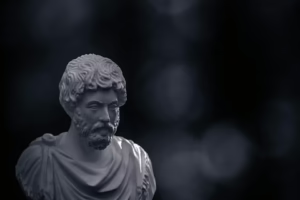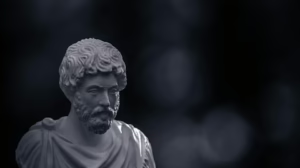Timeless Truths: The Philosophy Books That Shaped Our Lives
Philosophy has long been the bedrock of human thought, shaping our ethics, politics, and understanding of existence. Over centuries, a multitude of philosophical works has guided individuals and civilizations alike, offering insights into the nature of reality, morality, and the human condition. This article explores some of the most influential philosophy books that have left an indelible mark on our lives.
1. Plato’s “The Republic”
No discussion of philosophical literature can begin without mentioning Plato, whose work has profoundly influenced Western thought. “The Republic” presents a dialogue on justice, the ideal state, and the philosopher-king. Through the allegory of the cave, Plato explores the difference between the world of appearances and the world of reality, urging readers to seek knowledge beyond the superficial.
Plato posits that true justice is found in the harmony of society, where each individual plays an appropriate role. His ideas continue to resonate, informing political theory and discussions on ethics long after its writing. In today’s society, the question of justice remains relevant, particularly in political discourse about equality and the moral duties of citizens.
2. Aristotle’s “Nicomachean Ethics”
Following closely in Plato’s philosophical footsteps is Aristotle. In “Nicomachean Ethics,” Aristotle shifts focus from idealism to practical ethics. He introduces the concept of virtue as a mean between two extremes, emphasizing the importance of character in achieving the good life.
Aristotle’s exploration of happiness (eudaimonia) and ethical virtues offers a framework for individuals seeking purpose in their lives. His ideas about the development of moral character and rational thought have influenced modern ethical theory and personal development, revealing that the path to fulfillment lies in balance and the cultivation of virtues.
3. Descartes’ “Meditations on First Philosophy”
René Descartes, the father of modern philosophy, revolutionized Western thought in the 17th century. In “Meditations on First Philosophy,” Descartes famously declares, “Cogito, ergo sum” (I think, therefore I am). This foundational statement forms the cornerstone of his argument for the existence of the self and the separation of mind and body.
Descartes’ method of systematic doubt challenges individuals to question their beliefs and assess the reliability of perceived knowledge. His ideas have profound implications for modern science and philosophy, encouraging a critical approach to understanding reality. Today, Descartes’ legacy continues to inspire inquiry into consciousness, identity, and the nature of knowledge itself.
4. Kant’s “Critique of Pure Reason”
Immanuel Kant’s “Critique of Pure Reason” changed the course of philosophy by addressing the limits of human understanding. It sets forth the argument that while we can gain knowledge through experience, there are inherent limitations to what we can know about the universe.
Kant distinguishes between phenomena (the world as we experience it) and noumena (the world as it is in itself), emphasizing that true knowledge must consider both realms. His ideas laid the groundwork for modern philosophy, influencing existentialism, phenomenology, and even scientific inquiry. In today’s fast-paced digital age, Kant’s distinctions continue to inspire debates about the nature of reality and perception.
5. Mill’s “On Liberty”
John Stuart Mill’s “On Liberty” remains a vital work in discussions surrounding individual freedom and societal control. Mill argues that individual liberty must be protected from societal norms and government interference unless it harms others. This principle of harm is foundational to modern democratic thought.
Mill’s emphasis on free speech and tolerance underscores the importance of diversity of opinion in a healthy society. His insights remain relevant today as many grapple with issues of censorship, personal rights, and the balance between community welfare and individual autonomy. The clash between tradition and progress often echoes Mill’s arguments in contemporary debates.
6. Nietzsche’s “Thus Spoke Zarathustra”
Friedrich Nietzsche’s provocative text “Thus Spoke Zarathustra” challenges conventional morality and societal norms. Through the character of Zarathustra, Nietzsche introduces his concept of the Übermensch (Overman), advocating for the re-evaluation of values in a post-religious world.
Nietzsche’s disdain for dogma and focus on individual will and creativity have influenced existentialism and postmodern philosophy. His insights address the struggle for meaning in an increasingly secular society, resonating with individuals seeking to forge their own paths in life. Nietzsche inspires us to confront our beliefs and strive for authenticity in a complex world.
7. Camus’ “The Myth of Sisyphus”
Albert Camus’ essay “The Myth of Sisyphus” presents a compelling exploration of absurdism and the human condition. Using the mythological figure of Sisyphus, condemned to eternally roll a boulder uphill, Camus reflects on the search for meaning in an indifferent universe.
Camus concludes that despite life’s inherent absurdity, one can embrace existence and find joy in the struggle itself. His existential perspective offers a refreshing lens for navigating modern life’s uncertainties, encouraging individuals to seek meaning and fulfillment on their own terms.
8. Simone de Beauvoir’s “The Second Sex”
In “The Second Sex,” Simone de Beauvoir examines the construction of womanhood and the societal roles imposed on women. This seminal work in feminist philosophy explores the concept of “the Other” and the ways in which women’s identities have been shaped by patriarchy.
De Beauvoir’s insights have laid the foundation for subsequent feminist movements and discussions about gender equality. Her call for women to embrace their autonomy and challenge societal norms continues to inspire individuals advocating for gender rights today.
9. Foucault’s “Discipline and Punish”
Michel Foucault’s “Discipline and Punish” presents an intricate analysis of power, surveillance, and social control. By tracing the evolution of punishment and societal discipline, Foucault elucidates the ways in which systems of power operate in subtle yet pervasive ways.
His exploration of the relationship between knowledge and power invites scrutiny of contemporary issues such as institutional authority, societal norms, and individual autonomy. Foucault’s work serves as a reminder of the complex interplay between freedom and control, urging individuals to question structures that define their lives.
10. Thich Nhat Hanh’s “The Miracle of Mindfulness”
In contrast to more traditional Western philosophical texts, Thich Nhat Hanh’s “The Miracle of Mindfulness” emphasizes the importance of meditation and mindfulness as tools for personal transformation. This book brings Buddhist philosophy into the realm of practical living, advocating for awareness and presence in everyday life.
Nhat Hanh’s teachings encourage individuals to cultivate peace, compassion, and understanding within themselves and towards others. In an age of distraction and busyness, his emphasis on mindfulness resonates with many seeking emotional well-being and clarity.
Conclusion
Philosophy remains a vital part of human experience, offering frameworks that shape our understanding of the world. The books discussed provide timeless truths, addressing questions of existence, morality, and social justice. As we navigate the complexities of contemporary life, the insights of these philosophers serve as guiding lights, reminding us of the enduring quest for knowledge and understanding.
In embracing these timeless truths, we not only enrich our minds but also deepen our connection to the human experience, fostering a world where inquiry, reflection, and dialogue remain at the forefront of our collective journey.


























Add Comment